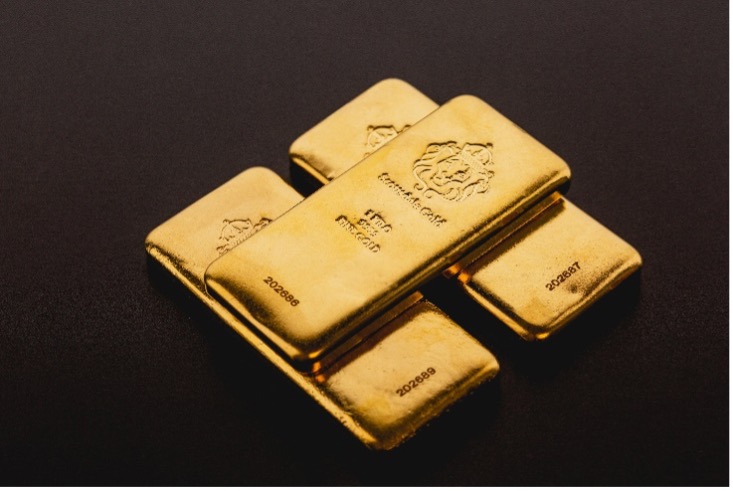Gold has long been considered a pillar of prosperity and economic security, over the years due to its value and widespread acceptance as an asset when economic conditions are unpredictable; however, recently there has been a growing interest in Bitcoin as a potential rival in this regard, leading to discussions and discourse among financial experts and investment professionals alike questioning the possibility of Bitcoin replacing gold as the preferred choice in the digital era. This debate has also impacted perspectives on gold trading, as analysts explore how Bitcoin’s emergence might reshape traditional investment approaches.
For centuries now, people have seen gold as an investment choice that tends to hold its value during downturn or market instability. Its limited availability and rich history offer investors a sense of stability. Likewise, Bitcoin’s capped total supply of 21 million coins introduces a scarcity to gold’s finite nature. This scarcity factor plays a role in why Bitcoin’s often referred to as the “digital gold.”
The comparison doesn’t stop there though; similar to gold’s nature of autonomy from systems and government interventions or economic uncertainties, Bitcoin is appealing to those looking for secure and transparent transactions in a decentralized manner too. The freedom that Bitcoin offers has caught the interest of a wave of investors who are exploring options beyond financial tools.
Bitcoin has an edge over gold when it comes to portability because storing and moving gold can be quite a hassle due to its weight and size, unlike Bitcoin, which can be easily kept in a wallet and sent worldwide within seconds. This convenience has played a role in boosting Bitcoin’s popularity in areas with limited access to regular banking services.
The difference between gold and Bitcoin lies in their volatility levels. Gold prices have typically been steady and predictable over time, whereas Bitcoin is known for its price changes; for example, in 2021 Bitcoin’s value shot up to almost $65k before dropping to around $30k, which shows how volatile it can be. This volatility can bring both opportunities for high profits and risks that need to be carefully considered.
In spite of the risks involved, Bitcoin investment has observed a rise in institutional interest recently. Prominent financial entities like hedge funds and publicly traded companies are now integrating Bitcoin into their investment portfolios. This shift indicates a change in how Bitcoin’s perceived. It is now being seen more as an asset class rather than just a risky speculation. Additionally, the introduction of Bitcoin exchange-traded funds (ETFs) has added to its legitimacy, allowing ordinary investors access to this market.
Gold remains a form of wealth preservation despite the advancements in assets like Bitcoin and the blockchain technology it relies on for transactions worldwide. Central banks globally are still acquiring gold as a part of their reserves to ensure stability and security in times of crisis. Unlike Bitcoin, which operates through digital means and blockchain technology susceptible to technical disruptions, gold’s intrinsic value as a physical asset endures even in situations where digital systems fail, making it a trusted choice for preserving wealth compared to the potential vulnerabilities of relying solely on digital currencies like Bitcoin.
The environmental aspects also set apart the two assets in various ways. Bitcoin mining has long faced criticism for its impact on nature, such as deforestation and water pollution, as well as carbon emissions. Gold mining is often seen as detrimental to the environment due to its extraction methods and negative effects like deforestation and pollution. Comparatively, Bitcoin mining, digital in nature, is not without its drawbacks. The energy-intensive process involved in verifying transactions and upkeeping the blockchain has sparked concerns over its carbon footprint. Efforts are being made to transition Bitcoin mining operations toward sustainable energy sources; however, the ongoing discussions about its sustainability remain unresolved.
Different age groups of investors also contribute to this discussion. The older generation tends to prefer assets like gold due to its historical resilience during economic challenges they have experienced before. Meanwhile, the younger generation is more inclined towards Bitcoin because of its potential for significant returns and its connection to the decentralized values of the digital era.
During times of turmoil or uncertainty on the global stage, another layer of complexity is added to the situation at hand. Investors have often sought solace in gold during periods of crisis as it has served as a reliable safe haven historically. Similarly, Bitcoin has also proven to be an asset for hedging against instability. In nations plagued by hyperinflation or stringent capital controls, like Venezuela and Turkey, Bitcoin has offered their residents a method to safeguard their assets.
The ongoing discussion on whether Bitcoin could supplant gold as the ultimate store of value is still unresolved among experts and enthusiasts. While some analysts advocate for the coexistence of both assets due to their functions and characteristics – with gold being renowned for its track record and tangible nature while Bitcoin symbolizes a modern take on financial advancements tailored to meet the demands of an increasingly connected and tech-driven society.
In the changing world of technology and finance, development trends are impacting how we invest in both digital and traditional assets for the long haul ahead. Bitcoin’s potential to compete with gold or work alongside it in an investment mix is still uncertain. Its increasing impact on financial markets cannot be ignored.
